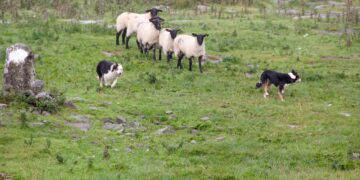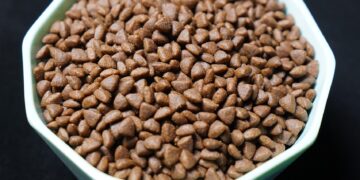Unlocking the Mystery: What Can Dogs Eat Everyday for Optimal Health?
Providing your furry family member with the right food is more than just a duty; it’s a way to ensure they live a happy, healthy, and energetic life. Understanding what dogs can eat every day to maintain optimal health is crucial. Let’s explore the essentials of canine nutrition, debunk common myths, and discover how you can keep your dog thriving!
The Foundations of Canine Nutrition
Just like humans, dogs require a balanced diet which includes a mix of proteins, carbohydrates, fats, vitamins, and minerals. However, their specific nutritional needs differ significantly from ours. Here’s what you need to know:
1. Proteins: The Building Blocks
Proteins are crucial for muscle growth and repair and should form a significant portion of your dog’s diet. Sources like chicken, beef, fish, and eggs are not only delicious but also provide essential amino acids that help keep your dog’s muscles strong and their fur glossy.
2. Carbohydrates: Energy Providers
Though less critical than proteins, carbohydrates are important for providing energy. Whole grains such as oats and brown rice are excellent sources, alongside vegetables like sweet potatoes and pumpkins. These not only fuel your pup but are also gentle on their stomachs.
3. Fats: Vital for Health
Fats are necessary for maintaining healthy skin, supporting kidney function, and improving brain health. Sources like fish oils and flaxseeds are rich in omega-3 fatty acids, promoting a shiny coat and providing anti-inflammatory benefits.
4. Vitamins and Minerals: Crucial Micronutrients
Dogs need a variety of vitamins and minerals for bodily functions such as bone health and the immune system. Calcium, found in bone meal or fortified foods, is essential for teeth and bones, while iron from red meat helps prevent anemia.
Typical Daily Diet for Dogs
What does a healthy daily plate for a dog look like? Comprehensive commercial dog foods usually cover all nutritional bases if they meet the standards set by the AAFCO (Association of American Feed Control Officials). However, if you prefer preparing homemade meals, here’s a simple guide you can follow:
- 50% protein – cooked lean meats, eggs, or dairy
- 25% vegetables – carrots, broccoli, and peas are safe and nutritious
- 25% grains – rice or oatmeal can be great energy sources
Note: Always ensure that any new food is introduced gradually to prevent digestive disturbances.
Foods to Avoid
No matter how pleadingly they might look at you during your meals, some common human foods can be dangerous for dogs. Here’s a brief rundown:
- Chocolate: Contains theobromine, toxic for dogs.
- Grapes and Raisins: Can cause kidney failure.
- Onions and Garlic: Potentially lead to blood cell damage.
- Xylitol: Often found in sugar-free gums and candies, it can cause liver failure.
Practical Tips for Feeding Your Dog
Tip 1: Measure Meals
Use a measuring cup to serve your dog’s meals to ensure they are getting just the right amount of food. Overfeeding is a common problem that often leads to obesity in dogs.
Tip 2: Consistent Meal Times
Feeding your dog at regular times each day helps regulate their body’s natural digestive and hunger cycles.
Tip 3: Keep Fresh Water Available
Ensure your dog has access to fresh water at all times, which is vital for digestion and overall health.
Conclusion: Understanding Makes Perfect
Armed with knowledge and insights about the best daily diet for dogs, you can now ensure your pet is not only satisfied at mealtime but is also receiving all the nutritional support they need. A balanced diet, rich in essential nutrients, will help your dog live a long, healthy, and vivacious life. Remember, each dog is unique, so it’s good to consult with a vet to cater to their specific nutritional requirements.
Enjoy the journey of nurturing your canine companion with confidence and love!














































